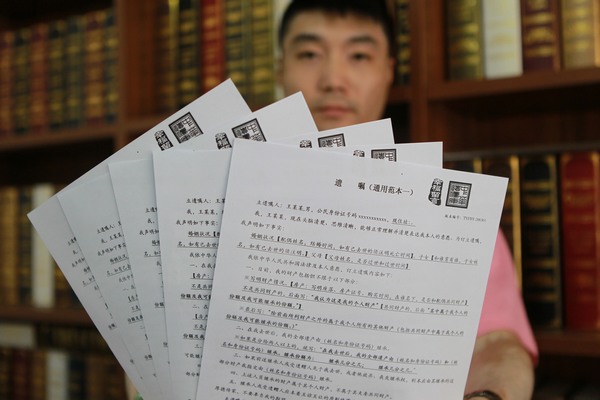Elderly willpower gets a boost
A new nonprofit organization is helping senior citizens overcome the difficulties inherent in drawing up a legally binding will and avoiding family disputes in the process, as Yang Yang reports from Beijing.
Early on a sunny summer morning, a dozen elderly people were sitting on benches outside a handsome house in Xijiaominxiang hutong, Beijing, fanning themselves while waiting for the China Will Bank to open for business. Wei Jinding, 91, was among those waiting. Although he wears a hearing aid in his left ear and can only walk with the aid of a stick, he looks hale and hearty. Accompanied by his eldest son and daughter-in-law, Wei was waiting to obtain advice about making a will and ensure that his three apartments are inherited by his intended recipients after his death.
 |
|
A China Will Bank staff member displays standard will forms. There are more than 10 types of will, designed to meet different needs. Photos by Cui Meng / China Daily |
"This is my own decision," said Wei, taking out a five-page document he had drafted at home. Although his eldest son and daughter-in-law have lived in one of his two-room apartments for several years, Wei was concerned that if he were to die intestate, his apartments would be divided equally among his five children, in line with China's Law of Succession. That would not only go against the elderly man's wishes, but could also lead to family strife, which is the last thing he wants.
The doors opened at 9:30 am, and a little later a staff member called Wei's name. His rapid reception was the result of having booked an appointment in April, but around 20,000 elderly people face a far longer wait, and some won't be seen until December 2014.





















